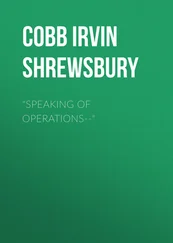Irvin Cobb - Local Color
Здесь есть возможность читать онлайн «Irvin Cobb - Local Color» — ознакомительный отрывок электронной книги совершенно бесплатно, а после прочтения отрывка купить полную версию. В некоторых случаях можно слушать аудио, скачать через торрент в формате fb2 и присутствует краткое содержание. Жанр: foreign_prose, на английском языке. Описание произведения, (предисловие) а так же отзывы посетителей доступны на портале библиотеки ЛибКат.
- Название:Local Color
- Автор:
- Жанр:
- Год:неизвестен
- ISBN:нет данных
- Рейтинг книги:5 / 5. Голосов: 1
-
Избранное:Добавить в избранное
- Отзывы:
-
Ваша оценка:
- 100
- 1
- 2
- 3
- 4
- 5
Local Color: краткое содержание, описание и аннотация
Предлагаем к чтению аннотацию, описание, краткое содержание или предисловие (зависит от того, что написал сам автор книги «Local Color»). Если вы не нашли необходимую информацию о книге — напишите в комментариях, мы постараемся отыскать её.
Local Color — читать онлайн ознакомительный отрывок
Ниже представлен текст книги, разбитый по страницам. Система сохранения места последней прочитанной страницы, позволяет с удобством читать онлайн бесплатно книгу «Local Color», без необходимости каждый раз заново искать на чём Вы остановились. Поставьте закладку, и сможете в любой момент перейти на страницу, на которой закончили чтение.
Интервал:
Закладка:
Now then, the task for me is to go back and begin this story where properly it should begin. Felix Looms, the well-known writer who went away on or about June fifteenth, and James Williams, who went to jail June seventeenth for picking a pocket, were one and the same person; or perhaps it would be nearer the truth to say that James Williams was Felix Looms.
Lest my meaning be misunderstood let me add that this is no tale of a reversion to type. It has nothing whatever to do with any suddenly awakened hereditary impulse. In the blend of Felix Looms’ breed no criminal strain persisted. His father was a Congregational preacher from Massachusetts and his mother a district school-teacher from Northern New York. His grandsires, on both sides, were good, clean-strain American stock. So far as we know, never a bad skeleton had rattled its bones in his family’s closet. He himself was a product of strict training in a Christian home, a Yale education and much book reading. The transition from Felix Looms, bookworm, author and sociologist, to James Williams, common rogue and convict, was accomplished deliberately, and, as it were, with malice aforethought.
Here was how the thing came about. Secretly, through a period of years, Felix Looms had nursed an ambition to write a great novel of prison life. It is true he had written a number of short stories and at least one novelette dealing with prison life, and, what was more to the point, had sold them after writing them; but they lacked sincerity. There was neither sureness nor assurance about them. He felt this lack; his publishers felt it; and in a way his readers no doubt felt it too, without knowing exactly why they felt it.
It is one of the inexplicable mysteries of the trade of writing that no man, however well he handles the tools of that trade, can write convincingly of things about which he personally does not know. A man might aspire, let us say, to write a story with scenes laid in Northern Africa. In preparation for this task he might read a hundred volumes about Northern Africa, its soil, its climate, its natives, its characteristics. He might fairly saturate himself in literature pertaining to Northern Africa; then sit him down and write his story. Concede him to be a good craftsman; concede that the story was well done; that his descriptions were strong, his phrasing graphic, his technic correct – nevertheless, it would lack that quality they call plausibility. Somehow the reader would sense that this man had never seen Northern Africa with his own eyes or breathed its air with his own nostrils.
To this rule there are two exceptions: A writer may write of things that happened in a past generation, after the last man of that generation is dead – therefore historical novelists are common; or, provided his imagination be sufficiently plastic, he may write of things that are supposed to happen in the future – he may even describe the inhabitants of the planet Mars and their scheme of existence. None will gainsay him, seeing that no contemporary of his has been to Mars or knows more of the conditions that will prevail a year or a century hence than he knows. But where he deals with the actualities of his own day and time he must know those actualities at first hand, else his best efforts fall to the ground and are of no avail. He simply cannot get away with it. Hearsay evidence always was poor evidence.
Felix Looms knew this. In his own case he knew it better than his readers knew it – or even his publisher. Critical analysis of his work had revealed its flaws to him until in his own soul he was ashamed and humiliated, feeling himself to be a counterfeiter uttering a most spurious coinage. So one day he said to himself:
“The worst thing in our modern civilisation is a prison. It is wrong and we know it is wrong; and yet we have devised nothing to take its place. A prison is crime’s chemical laboratory; it is a great retort where virulent poisons are distilled. Civilisation maintains it in the hope of checking certain gross evils; yet in it and by it evils as great are born and fostered. And the truth about it has never been told in the form of fiction, which is the most convincing form of telling the truth. Always the trouble has been that the people who have been in prison could not write about it and the people who could write about it have not been in prison.
“I know I could write about it, and so I am going to prison. I shall go to prison for one year, perhaps two or possibly three years; and when I come out I shall write a novel about prison life that will make my name live after me, for I shall know my facts at first hand – I shall have the local colour of a prison in my grip as no other man has ever had it who had my powers as a writer. I am going to gamble with this thing – the prison. I will give it a slice out of my life for the sake of the great work I shall do afterward.”
Mind you, I am not saying he put his big idea – for surely it was an idea and a big one – in exactly those words; but that was his thought. And when he came to work out the plan he was astonished to find how easy it was to devise and to accomplish. Thanks to his mode of life, his practical isolation in the midst of five million other beings, he needed to confide in but one person; and in Hartigan he found that person. Hartigan, a veteran of the detective business, who knew and kept almost as many intimate secrets as a father confessor, showed surprise just twice – first when Looms confided to him his purpose and again when he learned how generously Looms was willing to pay for his co-operation.
Besides, as Looms at their first meeting pointed out and as Hartigan saw for himself, there was no obligation upon him to do anything that was actually wrong. Aboard that crosstown car Looms did really take a watch from Hartigan’s pocket. Whatever the motive behind the act, the act spoke for itself. All that Hartigan told under oath on the witness stand was straight enough. It was what he did not tell that mortised the fabric of their plot together and made the thing dovetail, whole truth with half truth.
At the very worst they had merely conspired – he as accessory and Looms as principal – to cheat the state of New York out of sundry years of free board and freedomless lodgings at an establishment wherein probably no other man since it was built had ever schemed of his own free will to abide.
So Hartigan, the private detective, having first got his fee, eventually got his watch back and now disappears from this narrative. So Felix Looms, the seeker after local colour, gave up his bachelor apartments in the Rubens Studio Building and went away, leaving no forwarding address behind him. So James Williams, the petty felon, with no known address except the size number in his hat, went up the river to serve an indeterminate sentence of not less than three years.
From the hour he entered the Tombs on that morning of the eighteenth of June, Felix Looms began to store up material against the day when he should transmute it into the written word. Speaking exactly, he began storing it up even sooner than that. The thrill and excitement of the arrest, the arraignment before the cross magistrate in the night court, the night in the station-house cell – all these things provided him with startlingly new and tremendously vivid sensations. Indeed, at the moment his probing fingers closed on Hartigan’s watch the mind pictures began to form and multiply inside his head.
Naturally, the Tombs had been most prolific of impressions; the local colour fairly swarmed and spawned there. He had visited the Tombs once before in his life, but he knew now that he had not seen it then. Behind a mask of bars and bolts it had hidden its real organism from him who had come in the capacity of a sightseer; but now, as an inmate, guarded and watched and tended in his cell like a wild beast in a show, he got under the skin of it. With the air he breathed – and it was most remarkably bad air – he took in and absorbed the flavour of the place.
Читать дальшеИнтервал:
Закладка:
Похожие книги на «Local Color»
Представляем Вашему вниманию похожие книги на «Local Color» списком для выбора. Мы отобрали схожую по названию и смыслу литературу в надежде предоставить читателям больше вариантов отыскать новые, интересные, ещё непрочитанные произведения.
Обсуждение, отзывы о книге «Local Color» и просто собственные мнения читателей. Оставьте ваши комментарии, напишите, что Вы думаете о произведении, его смысле или главных героях. Укажите что конкретно понравилось, а что нет, и почему Вы так считаете.












